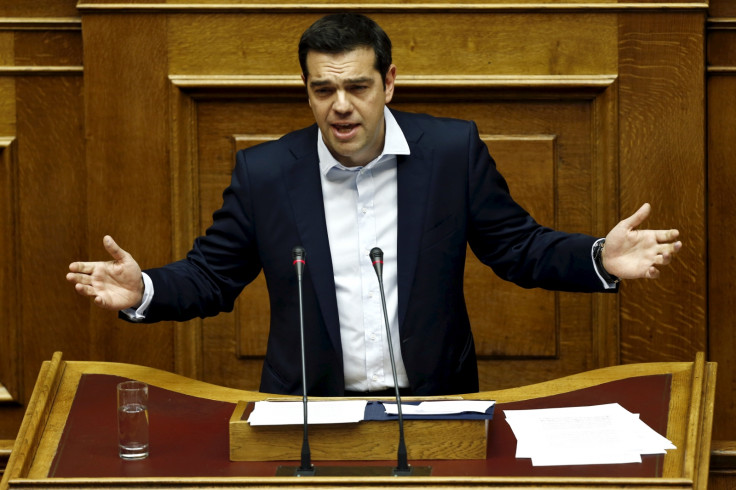Greek crisis: Banks at risk of insolvency, country on brink of Grexit and make or break for Tspiras

The fate of the Greek economy and its place in the eurozone is hanging in the balance after a whirlwind weekend saw prime minister Alexis Tsipras call a snap referendum and the European Central Bank (ECB) cap its funding to the country's banking system.
European Commission president Jean-Claude Juncker and German chancellor Angela Merkel are due to speak about the crisis later today (29 June), but experts believe that Greek banks could become insolvent if the ECB decides to suspend its Emergency Liquidity Assistance (ELA) programme.
Jim Reid, analyst at Deutshce Bank, said: "After the current program expires tomorrow night all eyes will be on whether the ECB actually suspends the ELA, effectively deeming the Greek banks insolvent. There will be little going back if they do."
The latest instalment of the saga, which has also seen Tspiras' left-wing Syriza government impose capital controls, a week-long bank holiday and ordered the domestic stock market to close, has resulted in long queues outside ATMs as Greeks scramble to withdraw cash. No withdrawals exceeding €60 (£42, $67) are allowed per day but many cash machines have already run dry.
Greeks, expecting the worst, have also been rushing to petrol stations and supermarkets to stock up on fuel and food.
While Reid expects the ECB to keep the cap in place until the referendum this Sunday, rather than suspend ELA, Greece is still facing the prospect of missing a critical €1.6bn debt payment deadline due to the International Monetary Fund (IMF) tomorrow.
Last-ditch talks with creditors – including the IMF, EU and ECB – aimed at releasing funds to help pay the debt collapsed when Tsipras moved to call the referendum on whether to accept the latest offer.
However, it is unclear whether the latest deal will still be on the table after the referendum.
"Any agreement that might have been available expires tomorrow night so it will become largely hypothetical by then," Reid added.
Given that, what will Greeks actually be voting for?

Lombard Odier's Salman Ahmed said: "The general narrative emerging alongside the referendum is about the future of Euro membership rather than the deal per se and as such a Yes vote, which can potentially lead to political reconfiguration in Greece can actually lead to a more longer lasting solution to the problem."
The referendum will effectively act as a vote of confidence in Tsipras' government, which is campaigning for a No, and as a plebiscite on Greece's eurozone membership.
Markets across the world reacted negatively to events in Greece, with selloffs across Asia and Europe.
Observers now expect the ECB to act in order to prevent contagion and to minimise the impact of a potential Grexit and repercussions for Eurozone project.
Ipek Ozkardeskaya, analyst at London Capital Group, said: "At some point in game, the ECB will certainly need to step in the market and reassure the periphery – watching with scared eyes – that this is not a one in the eye, that the situation in Greece is unique per se and that there is no need to panic or to extrapolate deeper meaning out of a potential Grexit. Given the panic run in the market, the ECB communication is essential to avoid an irreversible spill over the entire peripheral zone, which may place the existence of the euro in danger."
© Copyright IBTimes 2025. All rights reserved.






















